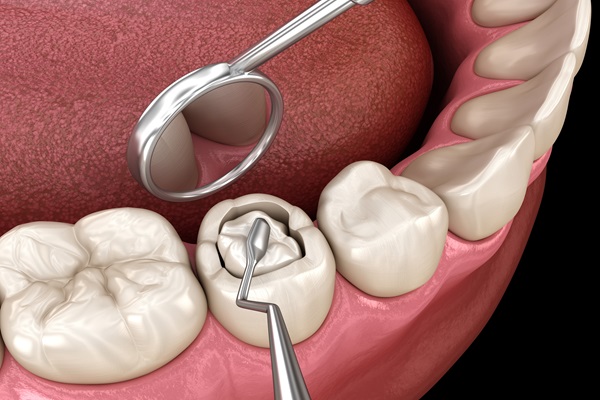 Dental crowns, also known as dental caps, are options that restore the strength, form, and size of teeth by covering them. Crowns can be placed the same day, or the dentist can complete the procedure over multiple appointments. If your dentist has suggested that you should get a dental crown, here are few helpful hints for aftercare.
Dental crowns, also known as dental caps, are options that restore the strength, form, and size of teeth by covering them. Crowns can be placed the same day, or the dentist can complete the procedure over multiple appointments. If your dentist has suggested that you should get a dental crown, here are few helpful hints for aftercare.
Aftercare tips following a dental crown procedure
The following aftercare tips can ease the recovery phase after getting a dental crown:
Avoid hot foods and drinks in the first few hours
The dentist will most likely administer a local anesthetic for each step of the crown process, whether the patient is getting same-day crowns or temporary crowns that are replaced with permanent ones at a later date. Patients need to be cautious not to bite their tongue, mouth, or the insides of their cheeks until the numbness goes away. Avoid hot foods and drinks until all sensations have returned, as accidental burns can occur.
Get pain meds for discomfort
Patients may feel discomfort and irritation around the treated tooth after the anesthetic wears off. Most of the time, an over-the-counter topical gel or a pain reliever like ibuprofen will suffice to alleviate the irritation. Many patients notice that brushing their teeth with a toothpaste designed for sensitive teeth helps them feel better. One of the most significant advantages of same-day crowns is that patients only have to go through one operation, which means they will not have to endure the pain twice.
Protect the temporary crown
If the dentist provides a temporary crown before placing the permanent one, remember that it is delicate, so chew on the opposite side of your mouth to prevent cracking or dislodging it. To allow the cement to set properly after receiving a permanent crown, stay away from sticky foods for 24 hours after the treatment. Patients should be able to eat regularly and brush their teeth normally after the cement has dried and the crown is securely in position.
Go to all scheduled dental visits
Follow-up appointments are expected to be scheduled by the dental professional providing the dental crowns, to guarantee that the healing process is going well and that there are no undetected complications. It is important to go to all planned appointments, as these could be needed for a complete and speedy recovery. The longer that a condition persists, the more serious it can get, and the dentist can easily identify and correct many problems in their early stages.
Final note
It is crucial to keep an eye out for any signs of problems during the dental crowns healing period and to contact the dentist if any arise so the condition does not worsen or last longer than it should. Excessive swelling, mild to serious bleeding, unbearable discomfort, and a loose dental crown are all signs to note. Although pain and other signs are normal, something extreme may indicate a more significant problem, such as an oral infection.
Request an appointment or call Maitland Square Dentistry at 407-337-1112 for an appointment in our Maitland office.
Related Posts
A dental crown can save a tooth that is in danger of extraction. Dental crowns serve a dual purpose. They reinforce the tooth structure and improve the appearance of the smile at the same time. This means that a dentist could recommend a crown as a treatment for tooth decay or injury. A cosmetic dentist…
The time and effort that go into fitting a dental crown suggest a permanent restoration. Maybe it is the fact that installing a dental crown often requires multiple dentist visits. It could be the permanence that comes with the removal of enamel before the placement of a crown. Dental crowns that sit on dental implants…
A dental crown is a versatile restoration that can be used to address a wide range of dental issues like a cracked, chipped, decayed, deformed, or broken tooth. The crown covers up the part of the tooth that is visible above the gums, protecting it from further damage and acids made by oral bacteria.The severity…


